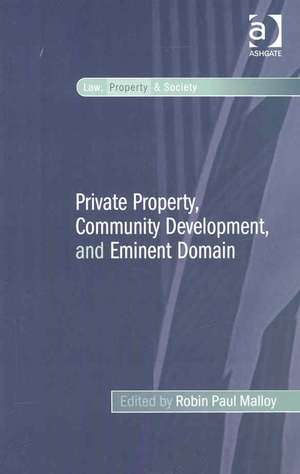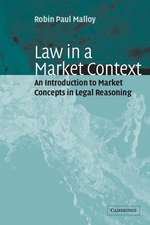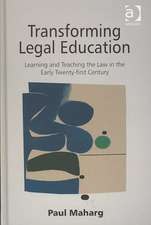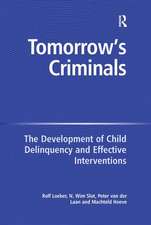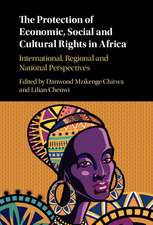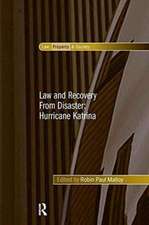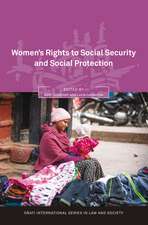Private Property, Community Development, and Eminent Domain: Law, Property and Society
Editat de Robin Paul Malloyen Limba Engleză Hardback – 28 mar 2008
| Toate formatele și edițiile | Preț | Express |
|---|---|---|
| Paperback (1) | 469.34 lei 6-8 săpt. | |
| Taylor & Francis – 28 noi 2016 | 469.34 lei 6-8 săpt. | |
| Hardback (1) | 1056.47 lei 6-8 săpt. | |
| Taylor & Francis – 28 mar 2008 | 1056.47 lei 6-8 săpt. |
Preț: 1056.47 lei
Preț vechi: 1288.37 lei
-18% Nou
Puncte Express: 1585
Preț estimativ în valută:
202.18€ • 219.54$ • 169.83£
202.18€ • 219.54$ • 169.83£
Carte tipărită la comandă
Livrare economică 22 aprilie-06 mai
Preluare comenzi: 021 569.72.76
Specificații
ISBN-13: 9780754672111
ISBN-10: 0754672115
Pagini: 230
Dimensiuni: 156 x 234 x 14 mm
Greutate: 0.5 kg
Ediția:1
Editura: Taylor & Francis
Colecția Routledge
Seria Law, Property and Society
Locul publicării:Oxford, United Kingdom
ISBN-10: 0754672115
Pagini: 230
Dimensiuni: 156 x 234 x 14 mm
Greutate: 0.5 kg
Ediția:1
Editura: Taylor & Francis
Colecția Routledge
Seria Law, Property and Society
Locul publicării:Oxford, United Kingdom
Notă biografică
Robin Paul Malloy is E.I. White Chair and Distinguished Professor of Law at Syracuse University College of Law, USA. He is Vice Dean, and Director of the Center on Property, Citizenship, and Social Entrepreneurism. He is also Professor of Economics (by courtesy appointment) in Maxwell School of Citizenship and Public Affairs, College of Law, Syracuse University. Professor Malloy writes extensively on law and market theory and on real estate transactions and development. He has published 10 books, more than 25 articles, and contributed to 10 other books.
Recenzii
'This book of insightful and carefully crafted essays presents numerous breakthroughs in contextualizing the seminal decision in Kelo v. City of New London and other recent developments in the law of eminent domain. By examining the decision from diverse historical, theoretical and comparative law perspectives, this book will become essential reading for anyone who wants to understand why eminent domain has become such a hotly contested legal, political and social battleground in the United States at the beginning of the 21st century.' John A. Lovett, Loyola University, USA 'With eminent domain law as the focal lens, this volume of essays provides great clarity of vision into the often blurred lines between private property and public uses. It invites us to see the manifold hues in the colorful overlay of legal doctrines, public policies and natural rights.' Frank S. Alexander, Emory University, USA '...a comprehensive, authoritative review of current research addressing the role of heritage in identity formation...Recommended.' Choice 'Private Property, Community Development and Eminent Domain contains a thorough, scholarly discussion of the major issues raised by the Kelo case. It would be a worthwhile addition to any law school library.' Legal Information ALERT 'This book presents a series of interesting analyses of issues...anyone working on scholarship on takings and economic development, KELO, or related topics will want to consult it.' The Law and Politics Book Review
Cuprins
Chapter 1 Private Property, Community Development, and Eminent Domain, Robin PaulMalloy, James CharlesSmith; Chapter 2 Hysteria versus History, Michael AllanWolf; Chapter 3 Kelo, the Castle, and Natural Property Rights, Eric R.Claeys; Chapter 4 Nothing “Errant” About It, D. BenjaminBarros; Chapter 5 Controls over the Use and Abuse of Eminent Domain in England, TomAllen; Chapter 6 Federalism and Localism in Kelo and San Remo, Marc R.Poirier; Chapter 7 Just Compensation in an Ownership Society, Rachel D.Godsil, DavidSimunovich; Chapter 8 Kelo v. City of New London and the Prospects for Development after a Natural Disaster, Carol NecoleBrown;
Descriere
Focusing on the relationship between private property, individual rights and community, this volume covers a variety of points of view with respect to the legal, economic and socio-legal aspects of property and of takings law, with reference to issues of governance, citizenship, community building and economic development.
